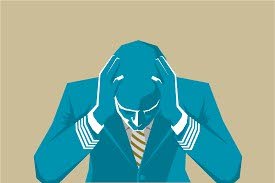Pilots' mental health issues

On December 5, the Federal Aviation Administration (FAA) announced the establishment of a rulemaking committee to examine its rules on pilots' and air traffic controllers' (ATC) mental health. The committee will identify and break down any remaining barriers that discourage pilots and ATCs from reporting and seeking care for mental health issues.
It must submit its recommendations to the FAA by March 2024.
On December 6, the National Transportation Safety Board (NTSB) convened a mental health forum to examine changes to pilots' mental health rules. The NSTB, under US law, is charged with the responsibility of investigating all aviation accidents and major incidents occurring in the US.
During the forum, pilots told the panel they feared reporting mental health issues, since they could be grounded by the FAA, in some cases permanently, thereby unable to earn a living.
The move comes after years of calls from industry and government leaders, and the high-profile case of an off-duty Alaska Airlines pilot who allegedly tried to crash a commercial flight last October, claiming he suffered from mental health issues.
Commercial airline pilots must possess a valid Class 1 medical certificate to be eligible to fly, and attend medical evaluations every year until the age of 40 – and then every six months until the age of 65 – to ensure they remain fit to fly and retain their certification.
The medical standards laid down by the ICAO specify which medical and psychological conditions can invalidate medical certification, such as heart disease, neurological illness, psychosis and diabetes.
Throughout their career, pilots are responsible for maintaining valid licences and medical certificates. They are also required to disclose any physical and psychological conditions, as well as any medications they may be taking.
Pilots undergo a thorough proficiency evaluation in a simulator every six months. Failure in the evaluation can result in additional training or loss of licence, and these repeated evaluations are a potential source of stress, as a poor outcome can result in a pilot losing his or her livelihood.
The FAA says it encourages pilots to seek help if they have a mental health condition, since most, if treated, do not disqualify a pilot from flying.
Certain conditions do, however, disqualify pilots from flying, such as psychosis, bipolar disorder and some types of personality disorder, according to the agency.
The British Psychological Society (BPS) describes pilots as a professional group who experience unusual psychological challenges.

According to the BPS, professional airline pilots are repeatedly evaluated throughout their professional careers to ensure they are fit to fly. Few occupational groups are subject to the same level of scrutiny, and the process of evaluation begins at the recruitment stage. Pilots applying for jobs with an airline undergo extensive testing, including psychological testing, to ensure they have the required cognitive skills (thinking, reasoning, remembering), flying aptitude and other competencies to do the job.
Although psychologists play a crucial role in the selection process and often administer personality tests in addition to tests of cognitive function. The mental health of airline pilots is not routinely assessed at this stage.
The working conditions and environment in which pilots work are physiologically and mentally challenging. It is important that the aviation industry recognises the different sources of work-related stress affecting pilots and seeks to reduce them.
Pilots spend long hours confined to a small workspace in the cockpit. They are required to execute multiple tasks at 39,000 feet whilst enduring noise, vibration, reduced oxygen and exposure to cosmic radiation at high altitudes.
Pilots have to work irregular hours and cope with frequently changing schedules and shift work, causing circadian-rhythm disruptions. Pilots have to work with different colleagues on different routes every time they report for duty, and may have to cope with demanding situations such as in-flight emergencies.
Apart from dealing with the unique pressures of flying aircraft, pilots also have to contend with threats of terrorism, working in an increasingly challenging economic environment with consequences for job security and in some cases zero-hours contracts, placing the pilot in an unenviable position of job uncertainty.
Personal stressors occur outside the workplace which can affect performance at work. Pilots, like most people, have obligations, responsibilities and challenges outside work, like everyone else in the general population, such as illness, bereavement and marital and family difficulties. If not addressed, these can lead to the development of mental health conditions such as anxiety and depression.
Frequent absences from home make it difficult for pilots to establish and maintain sexual, marital and social relationships. Domestic disputes and relationship difficulties can lead to emotional stress, which can affect a pilot’s ability to concentrate or make decisions while flying.
Stress also disrupts sleep and can lead to increased fatigue, which in turn impairs social and cognitive performance.
Some studies have found a link between interpersonal problems, financial difficulties and career strains and pilots’ mental health conditions and fatigue.
On October 31, 1999, EgyptAir Flight 990, on a scheduled flight from Los Angeles to Cairo International Airport, operated by a Boeing 767-300ER aircraft, crashed into the Atlantic Ocean about 60 miles south of Nantucket Island, Massachusetts, killing all 217 passengers and crew on board.
The accident was jointly investigated by the US NTSB and the Egyptian Civil Aviation Agency. The NTSB final report NTSB/AAB-02/01, in the Probable Cause section, said, “The NTSB determines that the probable cause of the EgyptAir flight 990 accident is the airplane's departure from normal cruise flight and subsequent impact with the Atlantic Ocean as a result of the relief first officer's flight control inputs. The reason for the relief first officer's actions was not determined.”
Investigators suspected that the 59-year-old relief co-pilot had mental health issues related to depression caused by being bypassed for promotion, as he did not have sufficient English-language proficiency to sit the exam for the Airline Transport Pilot Licence (ATPL), which was a requirement to become a captain.

Comments
"Pilots’ mental health issues"